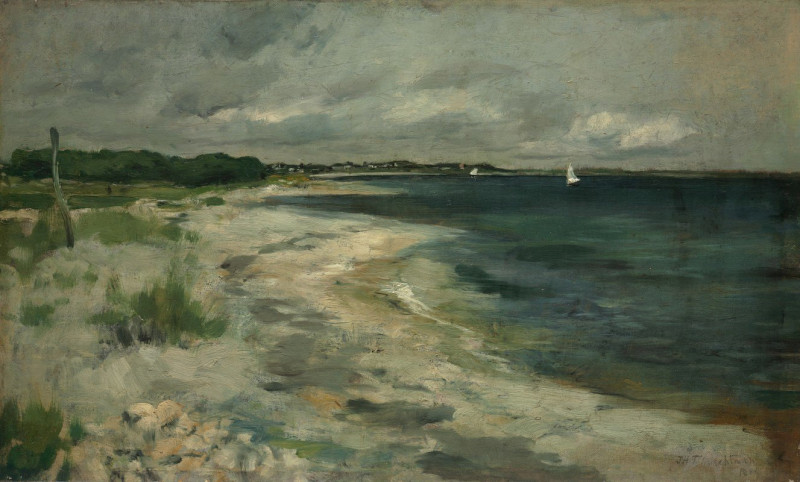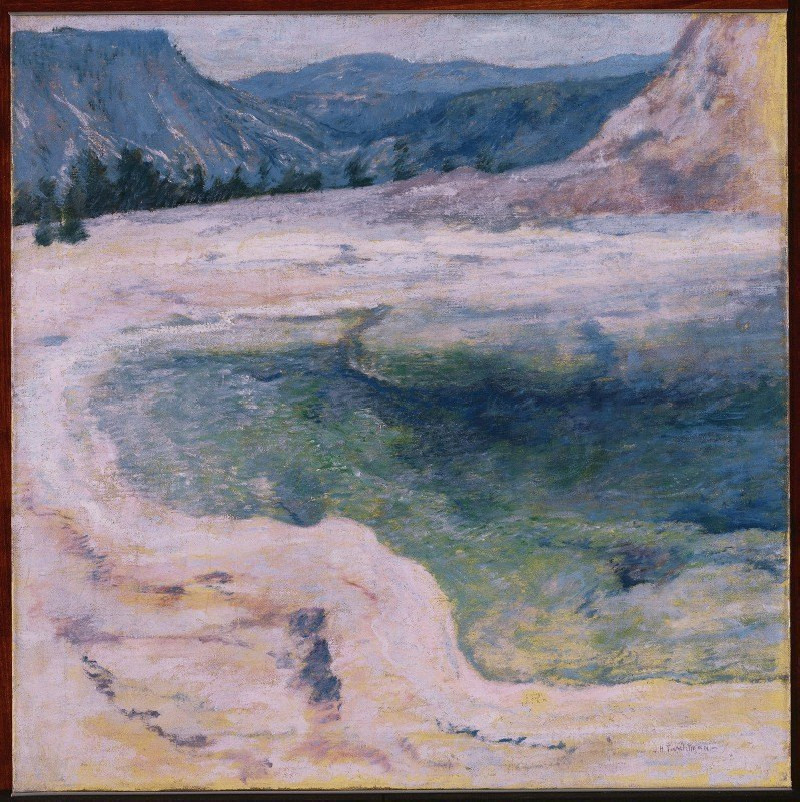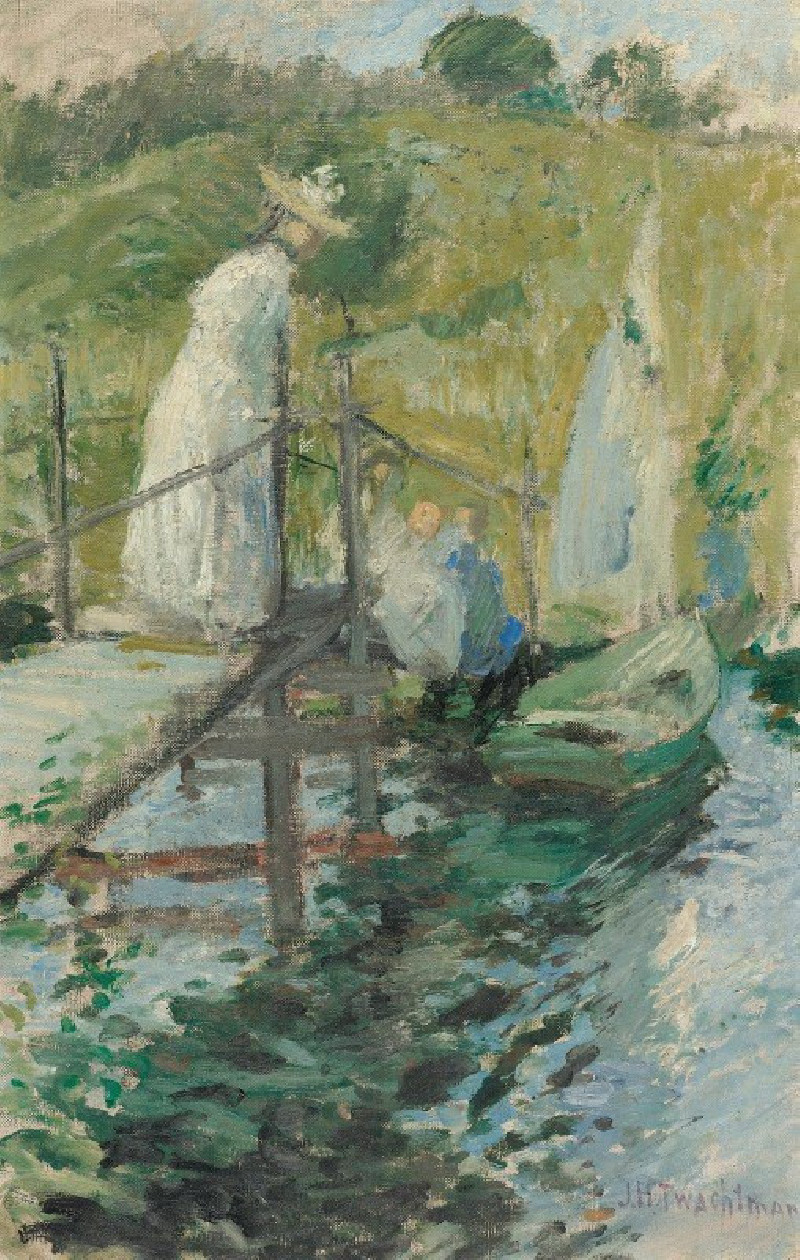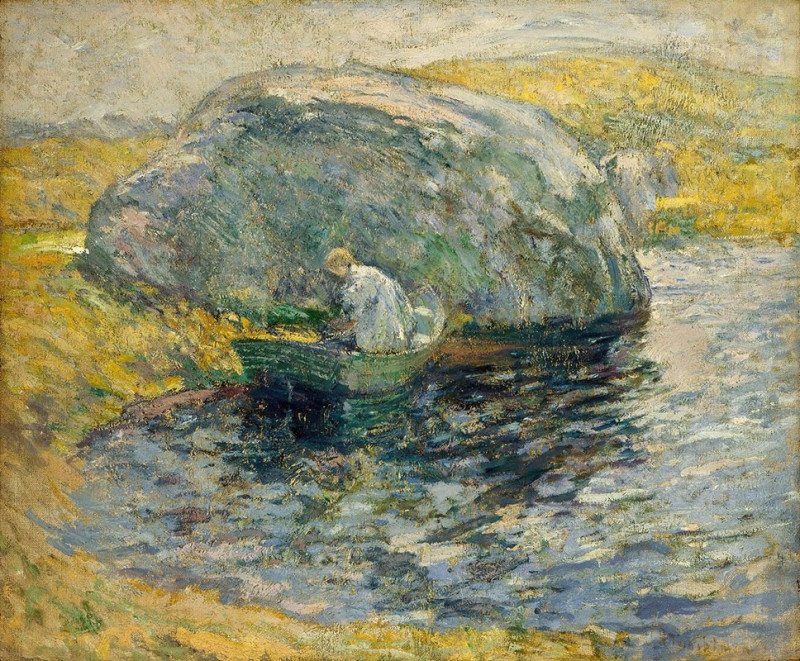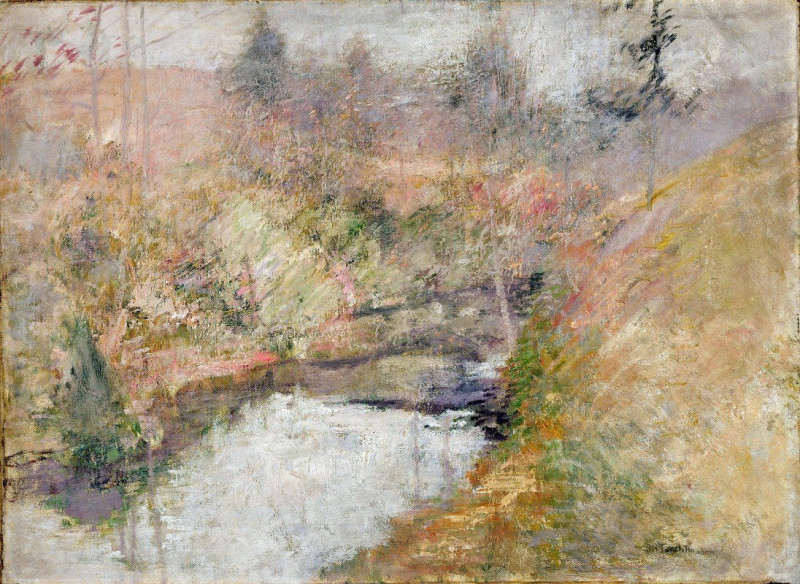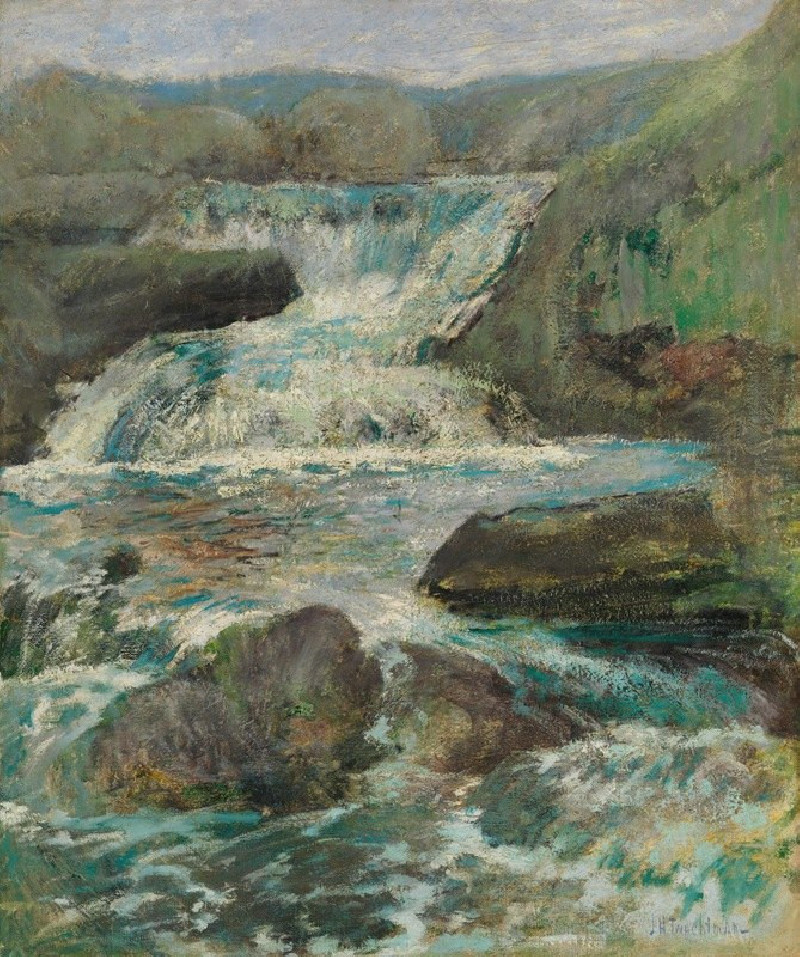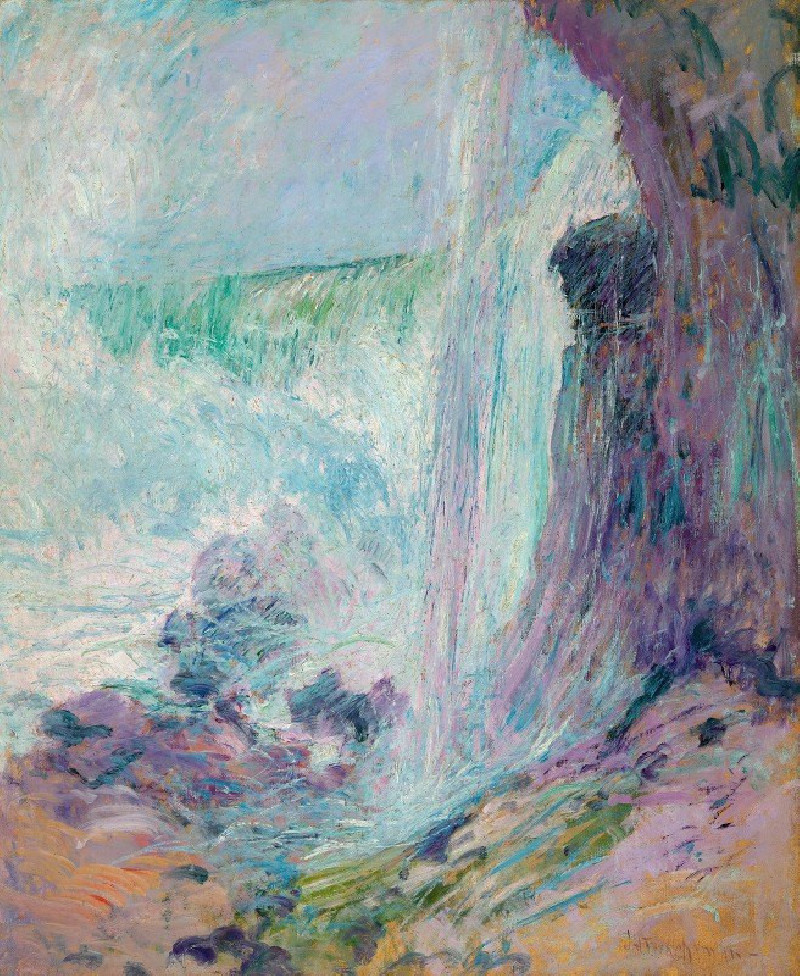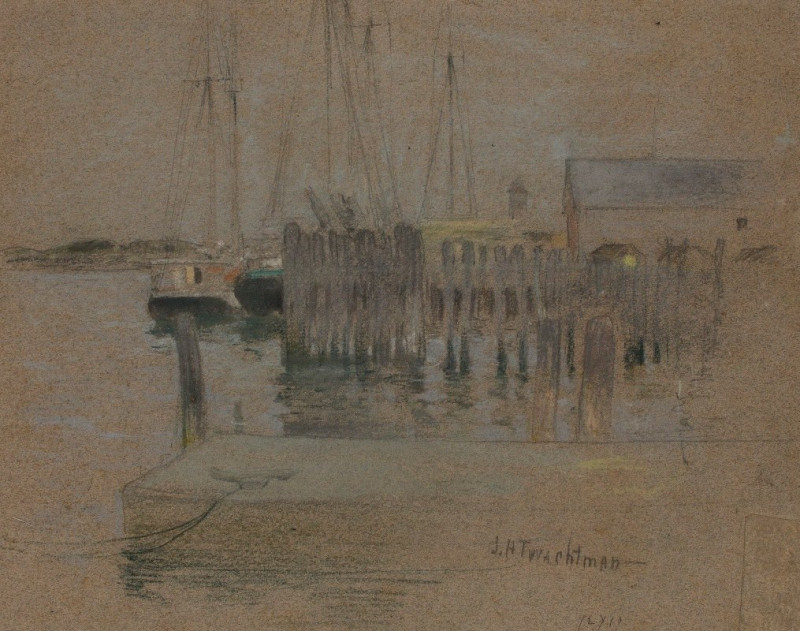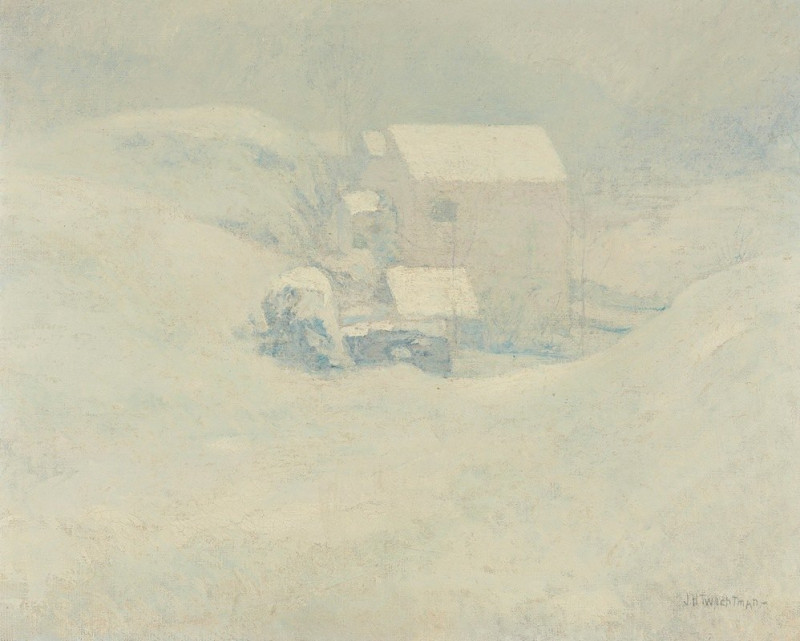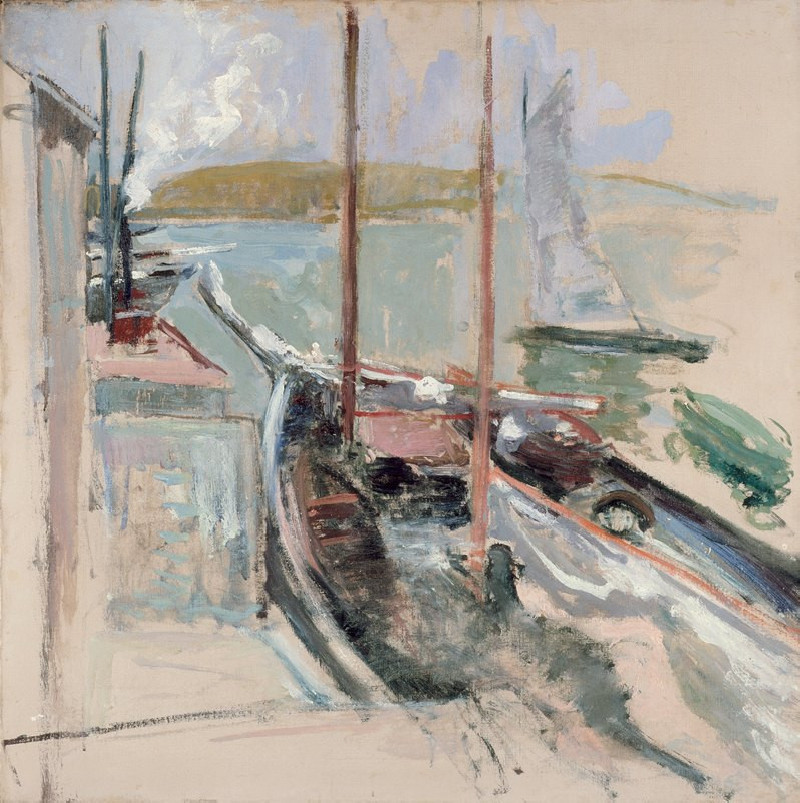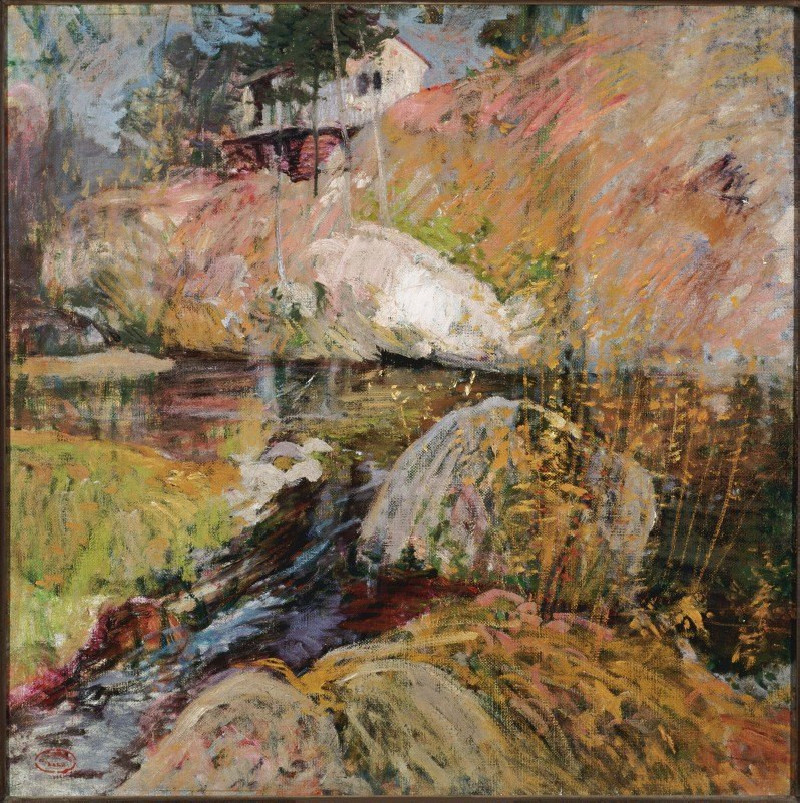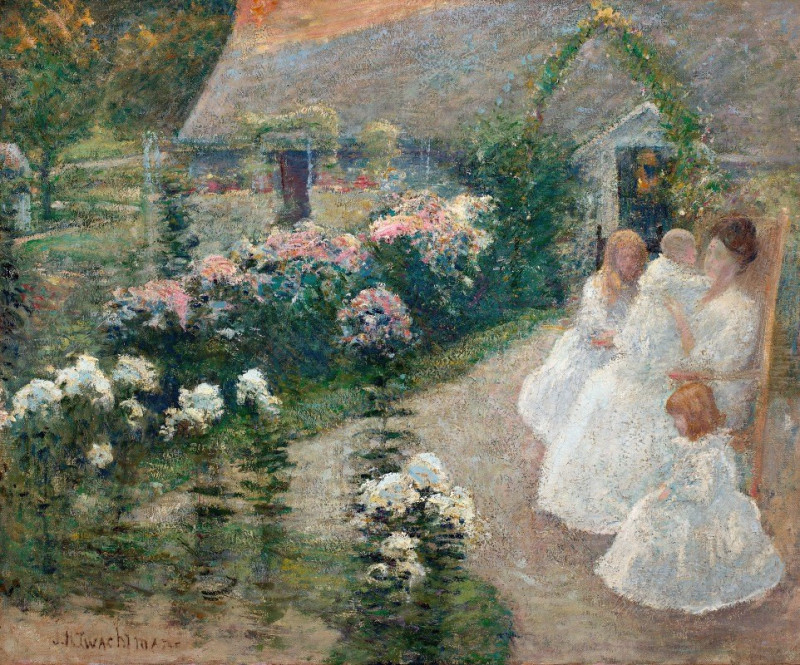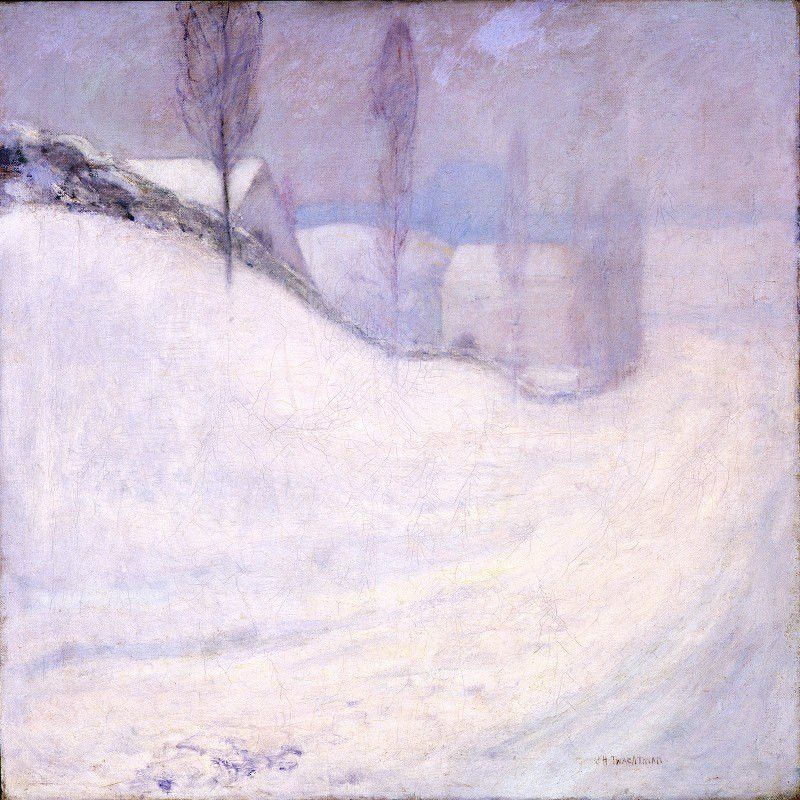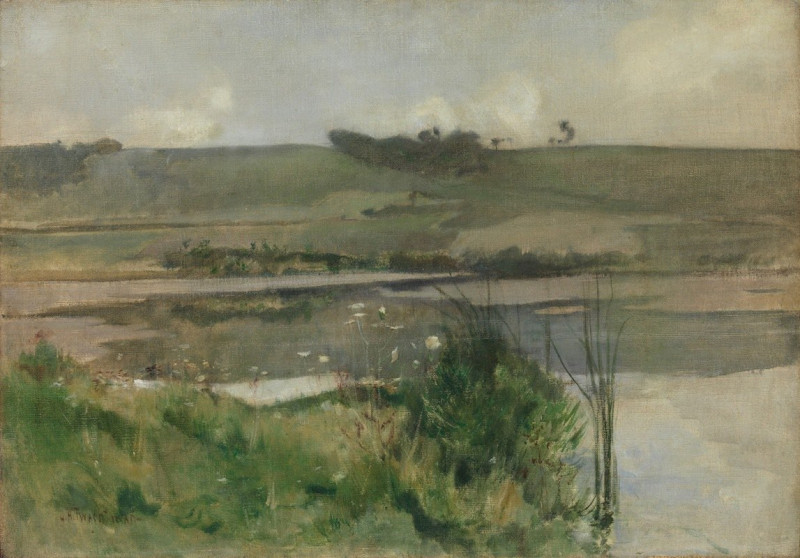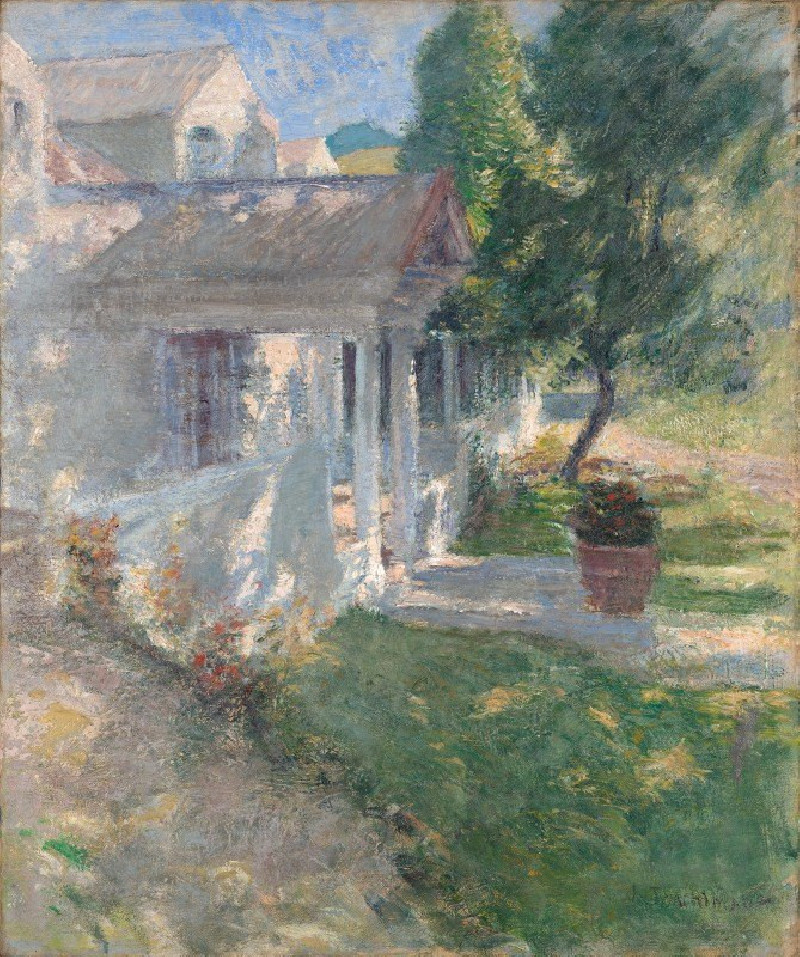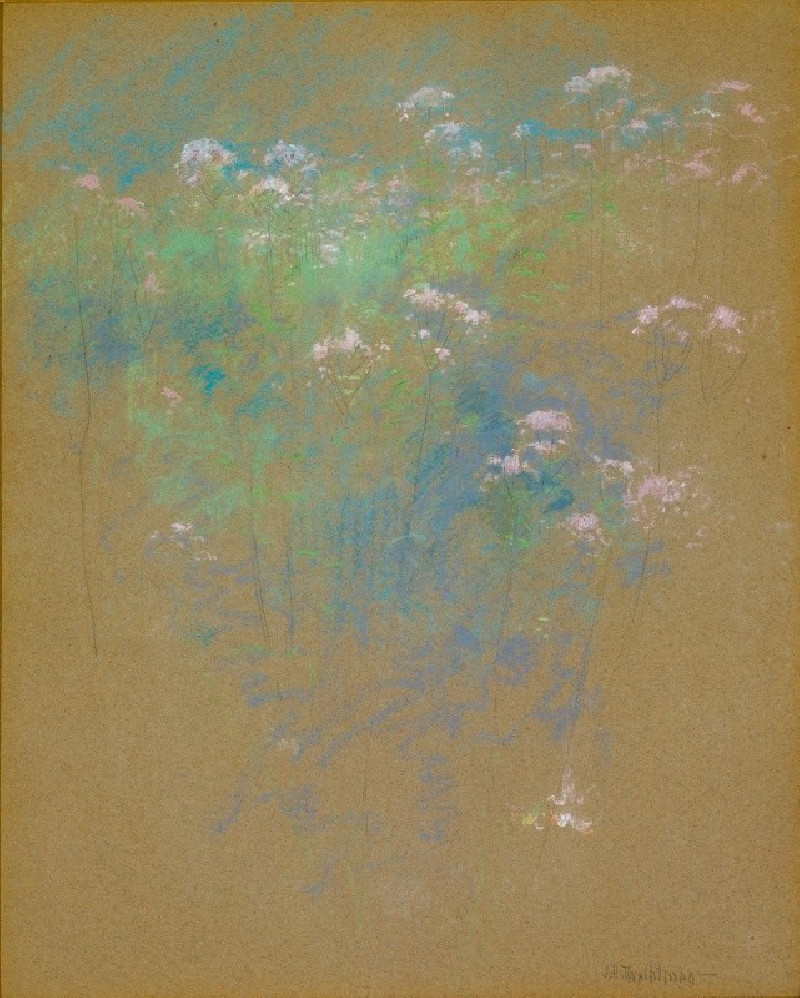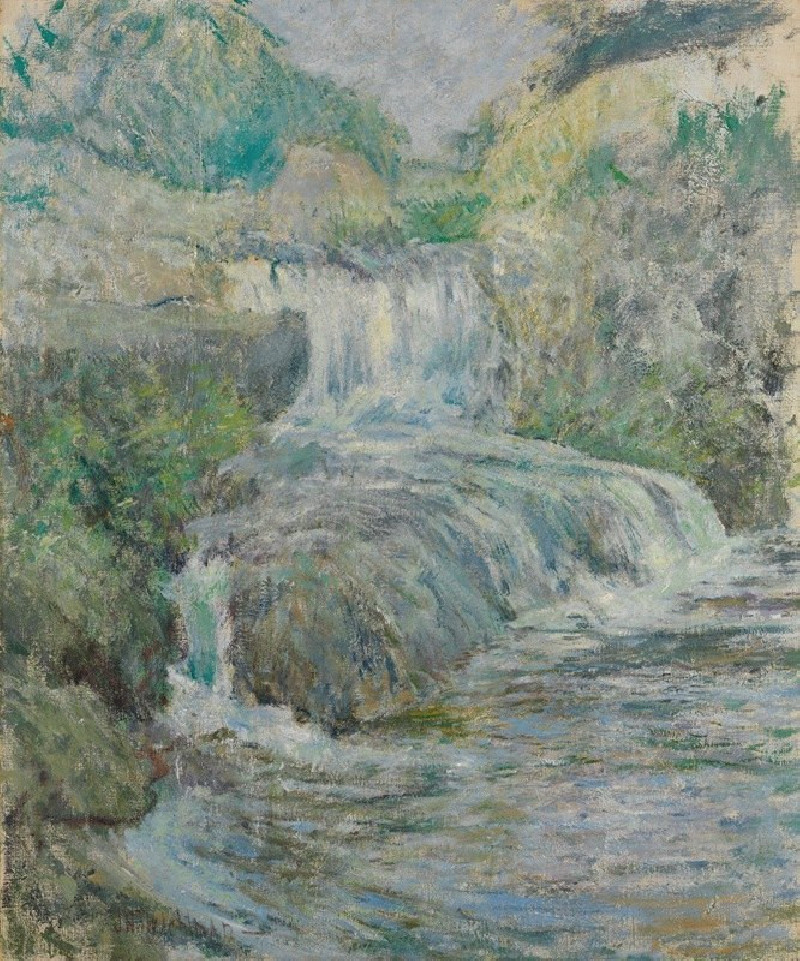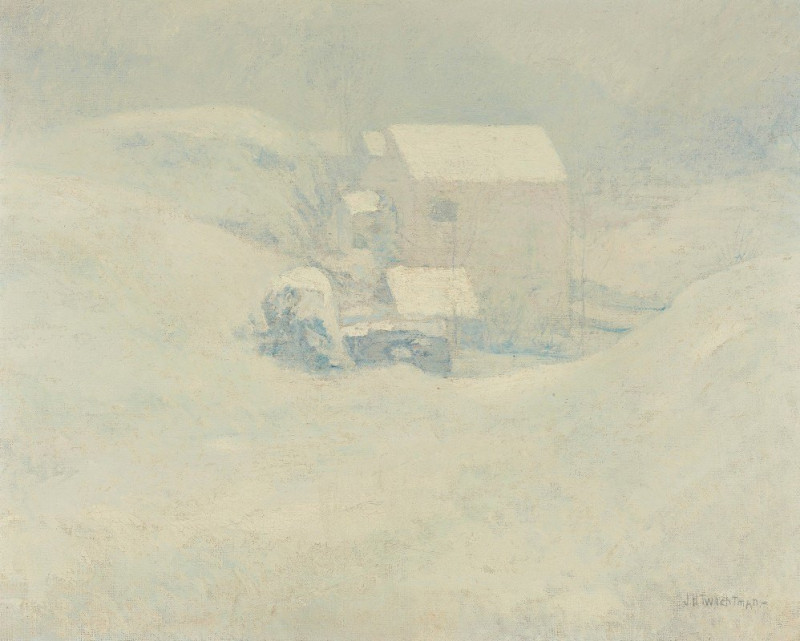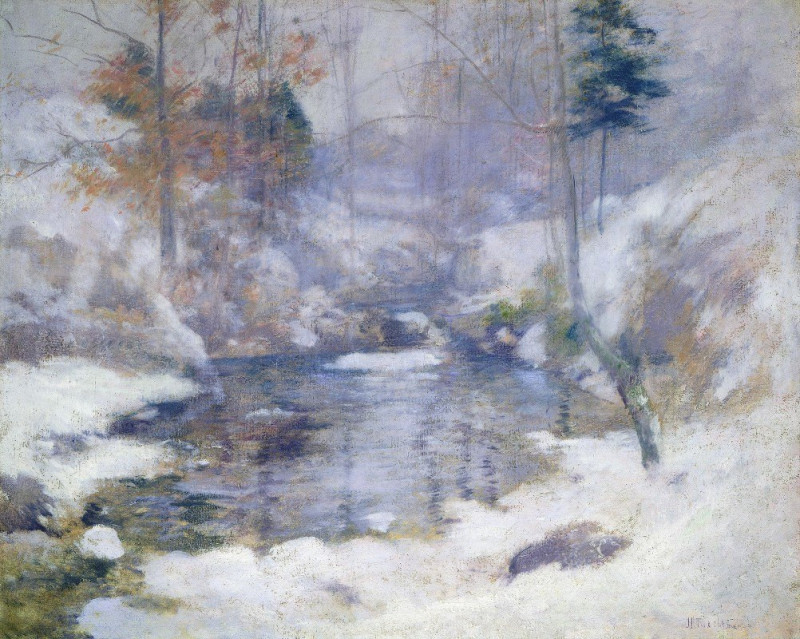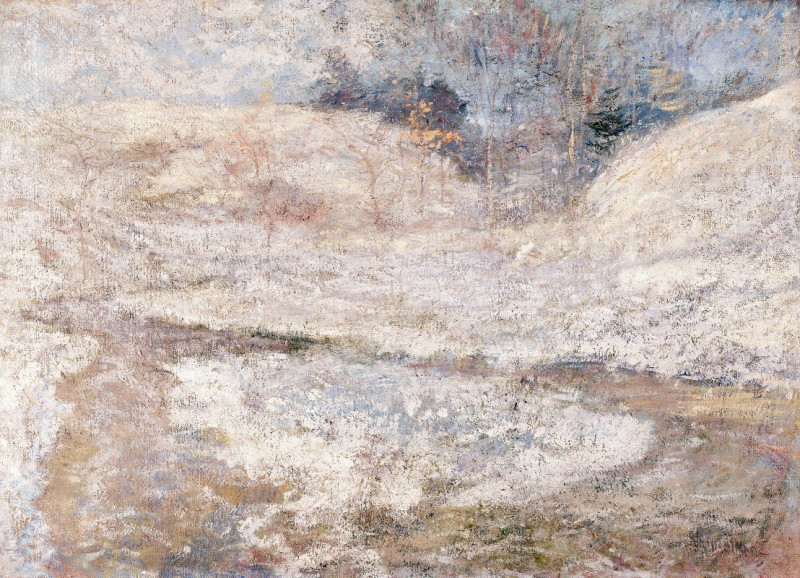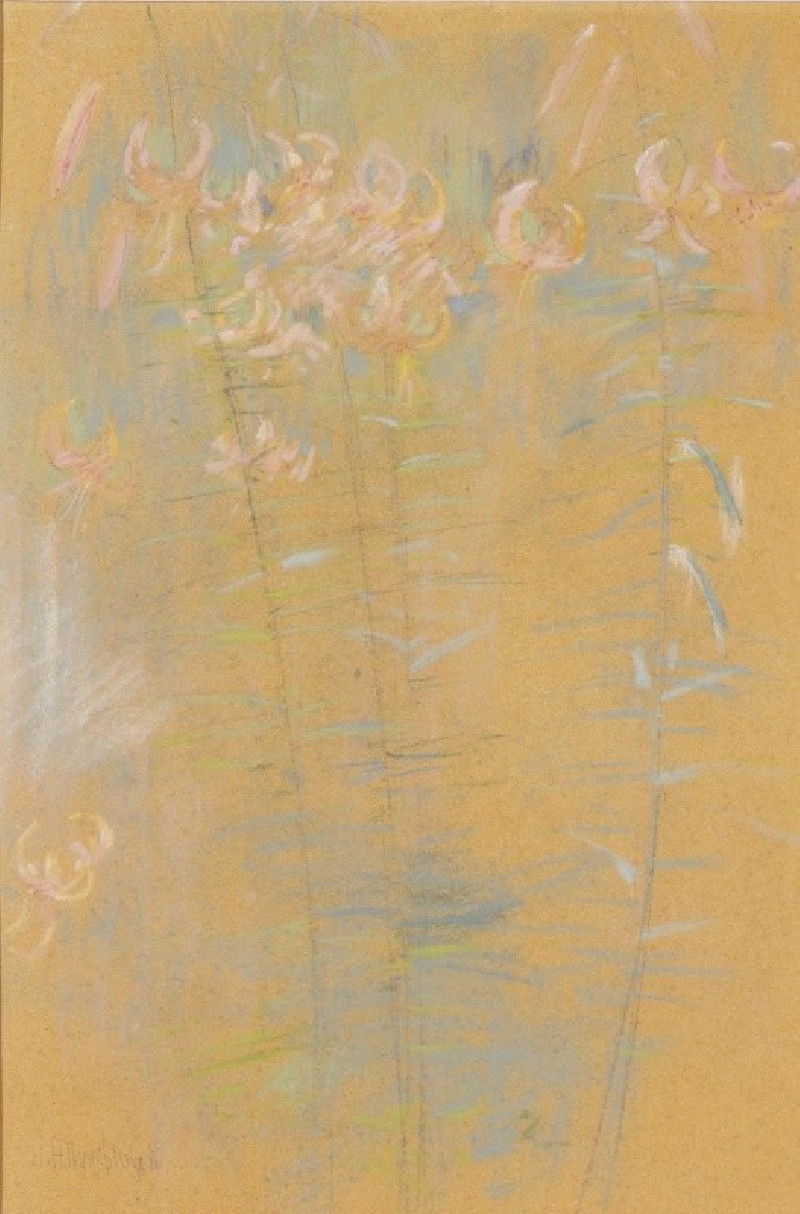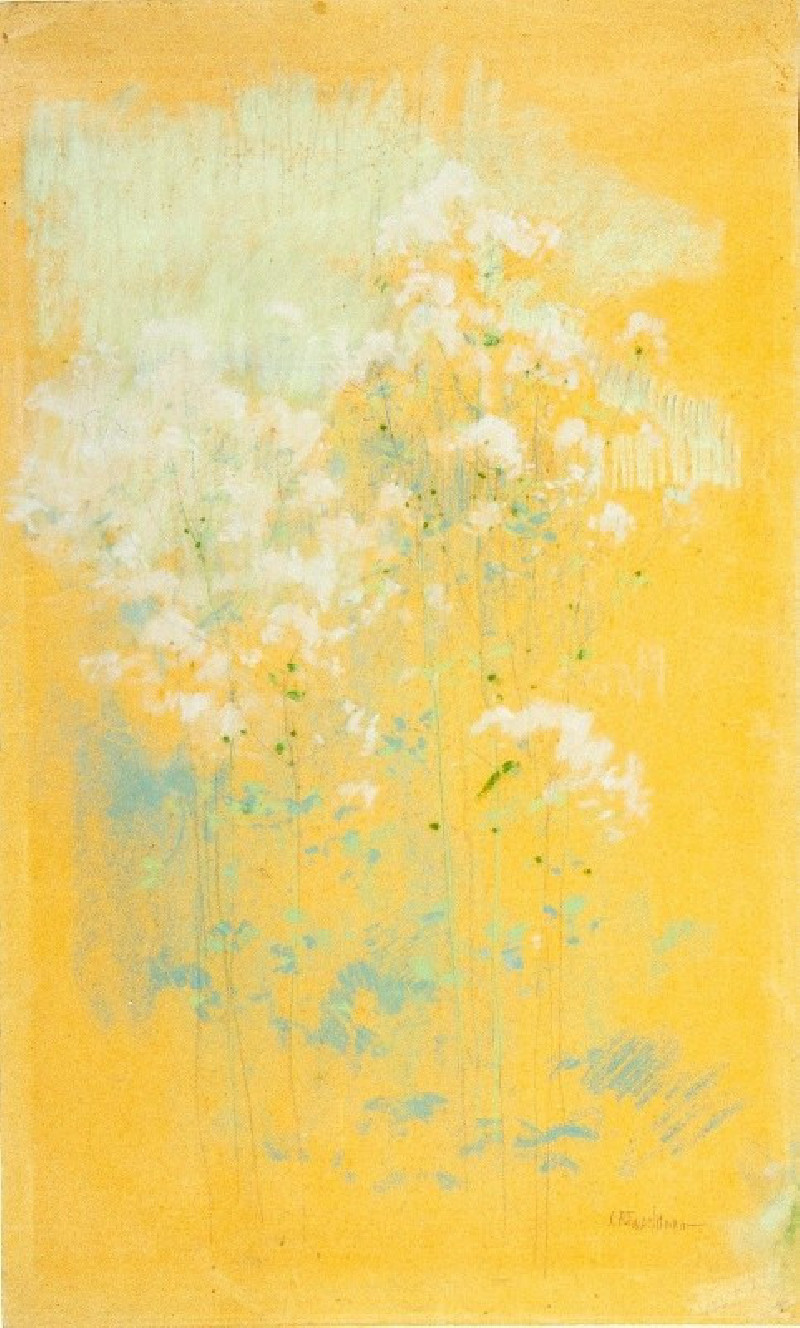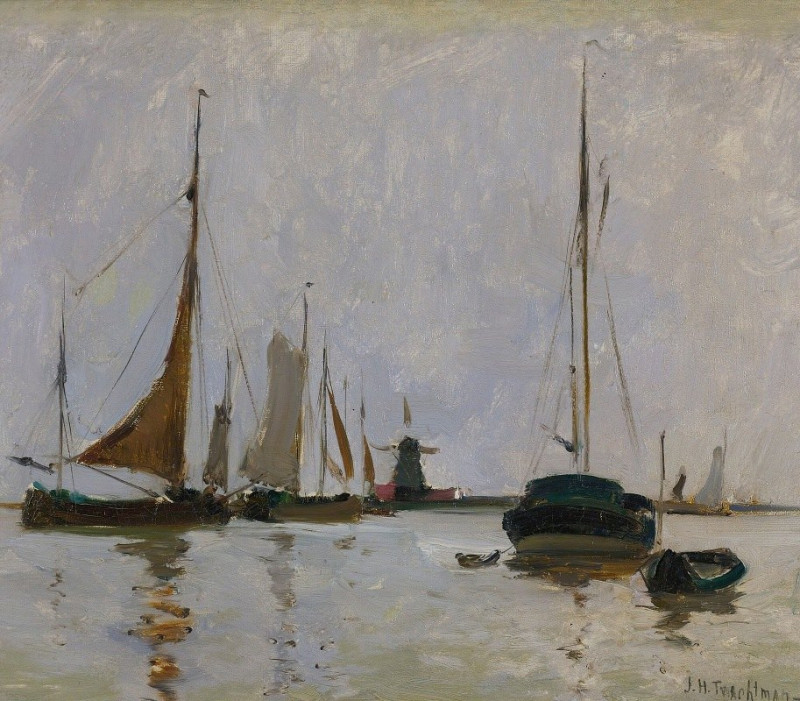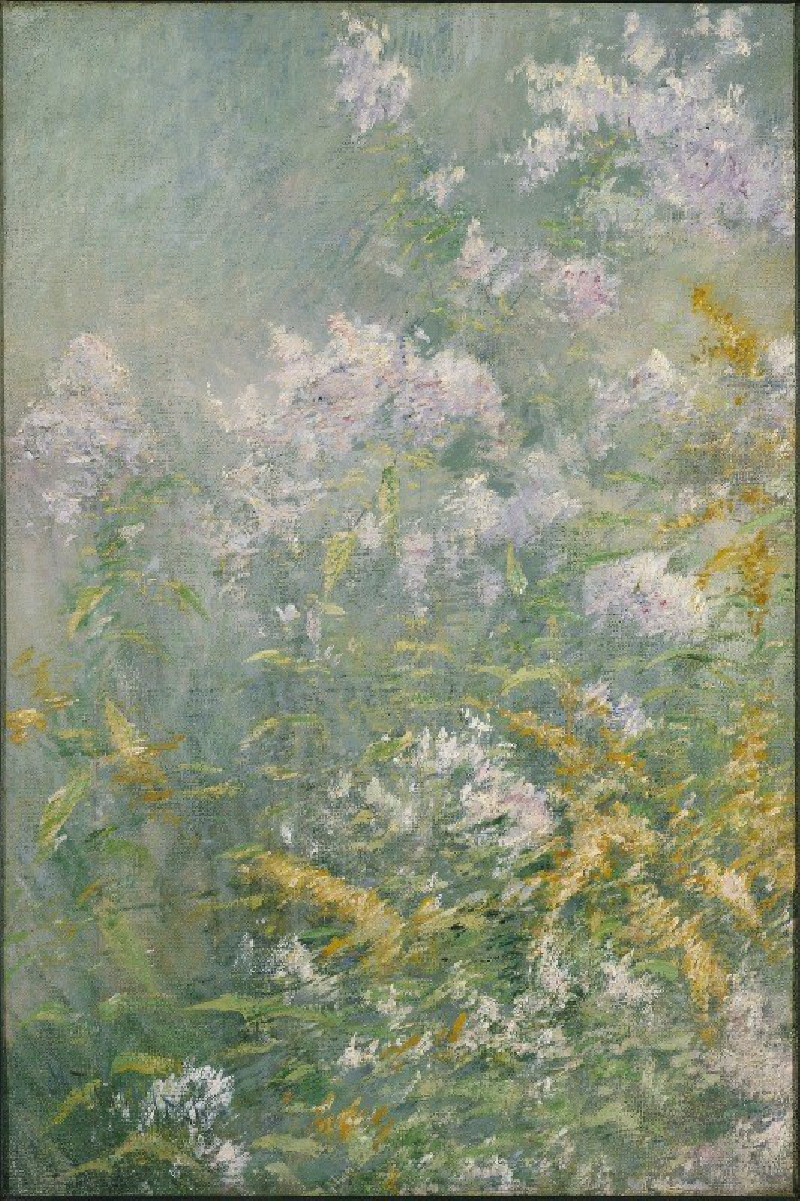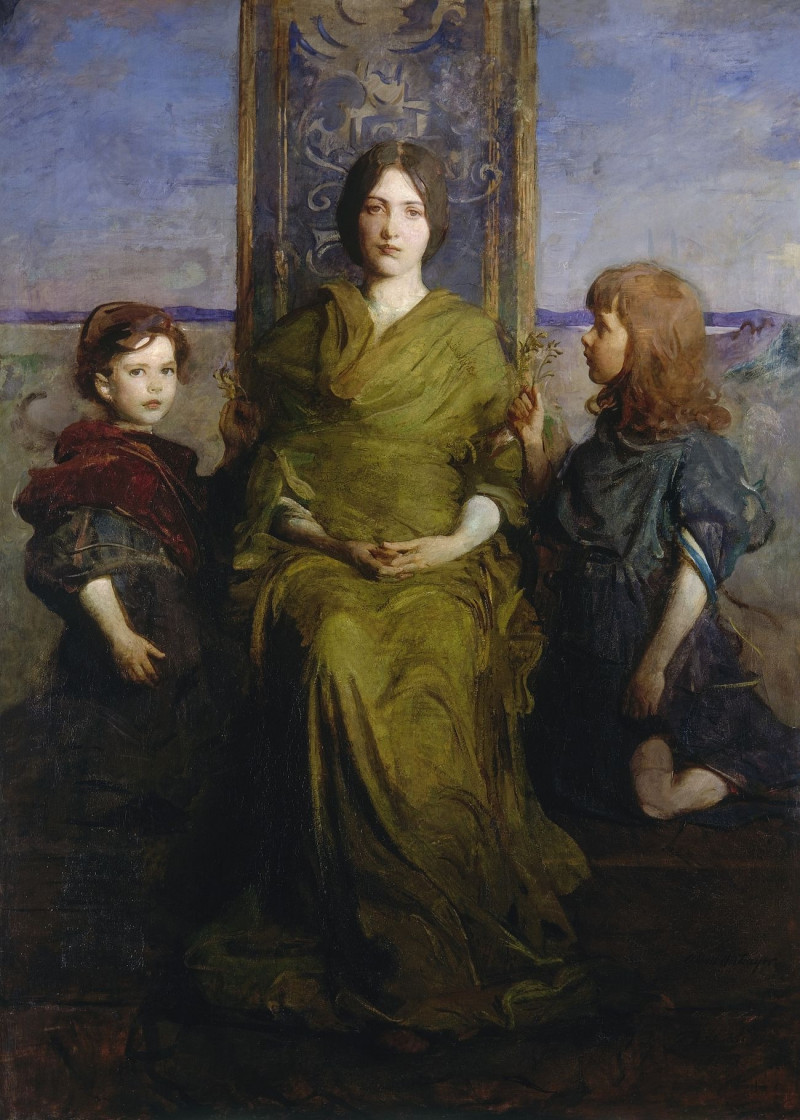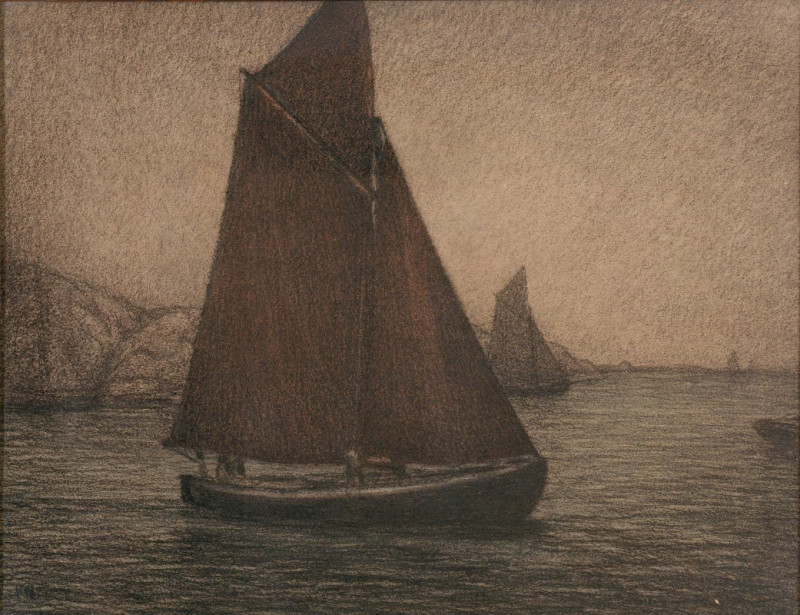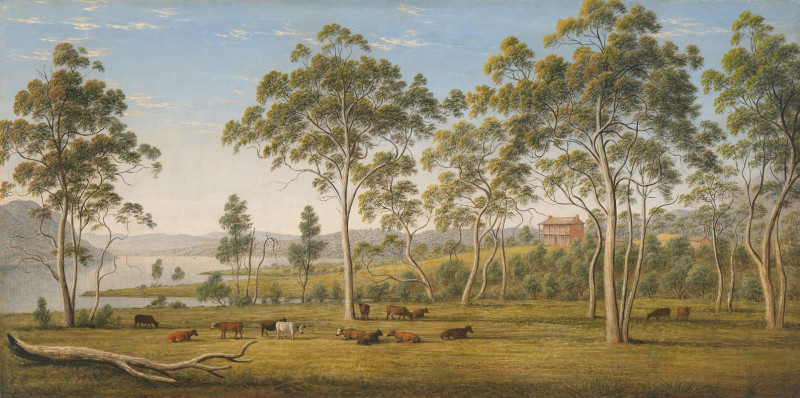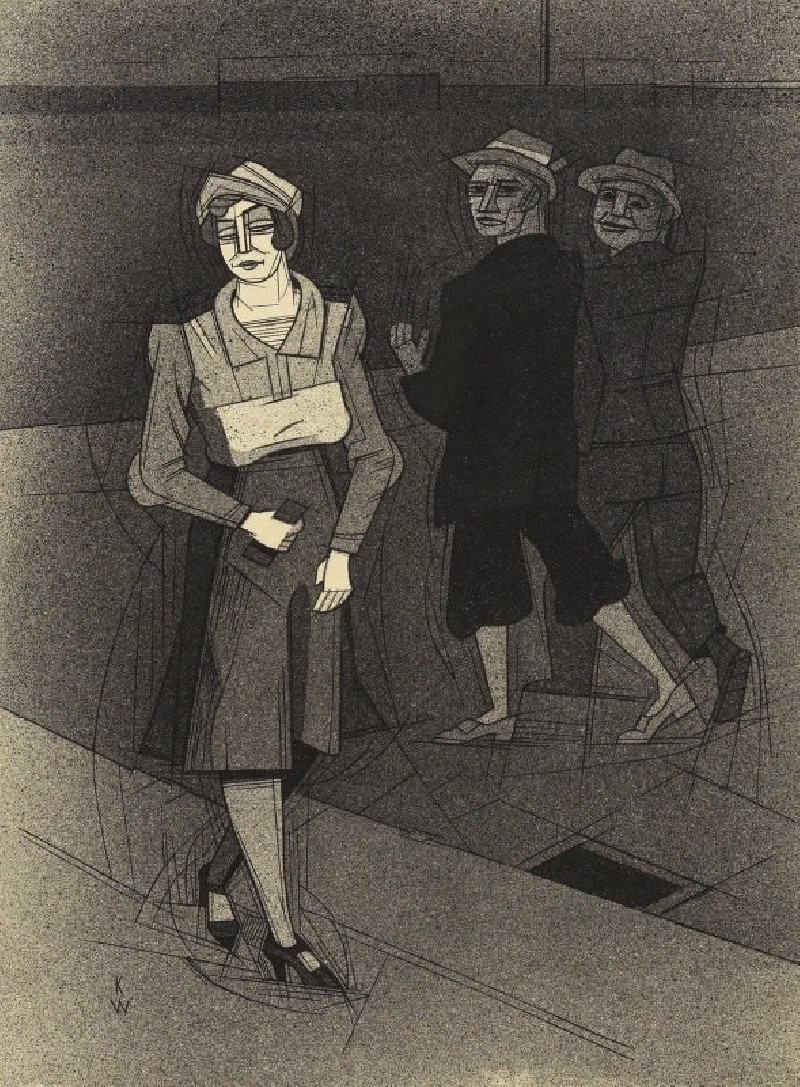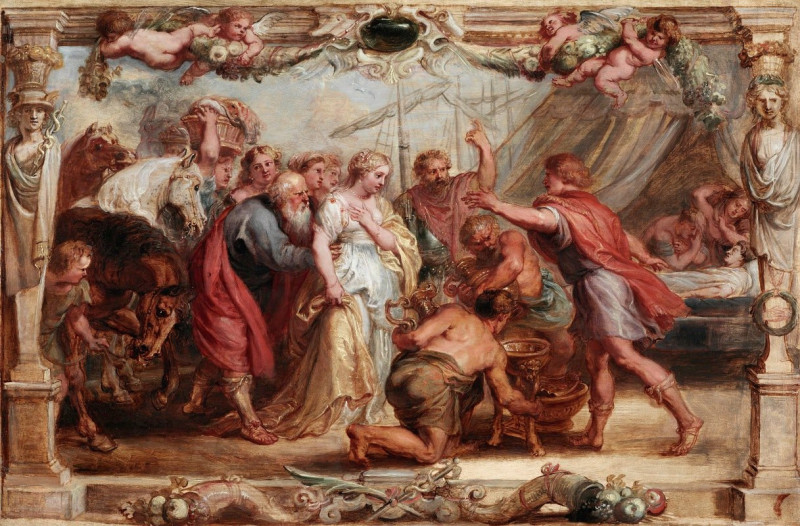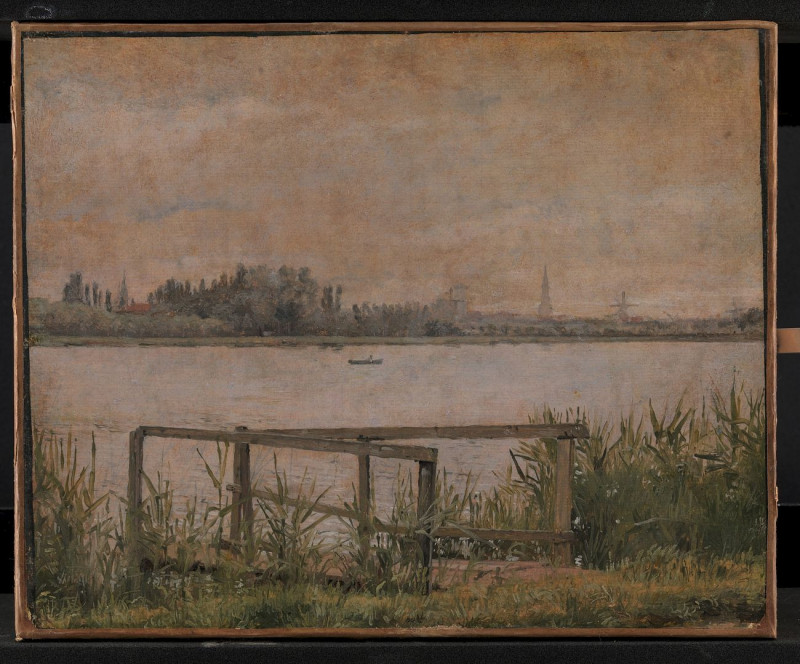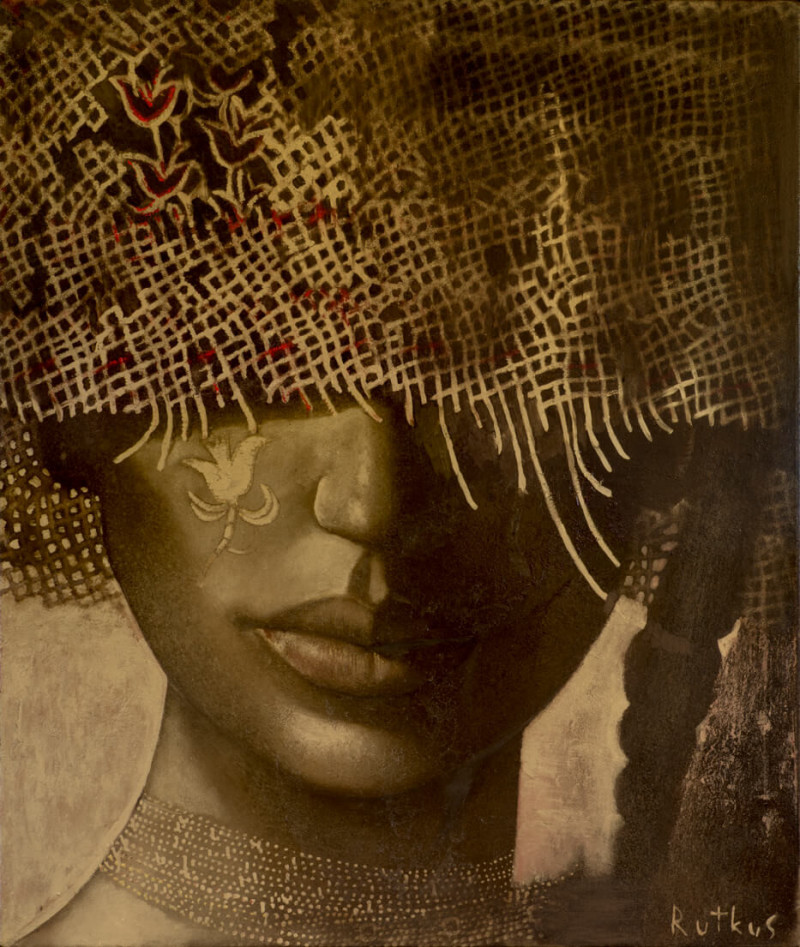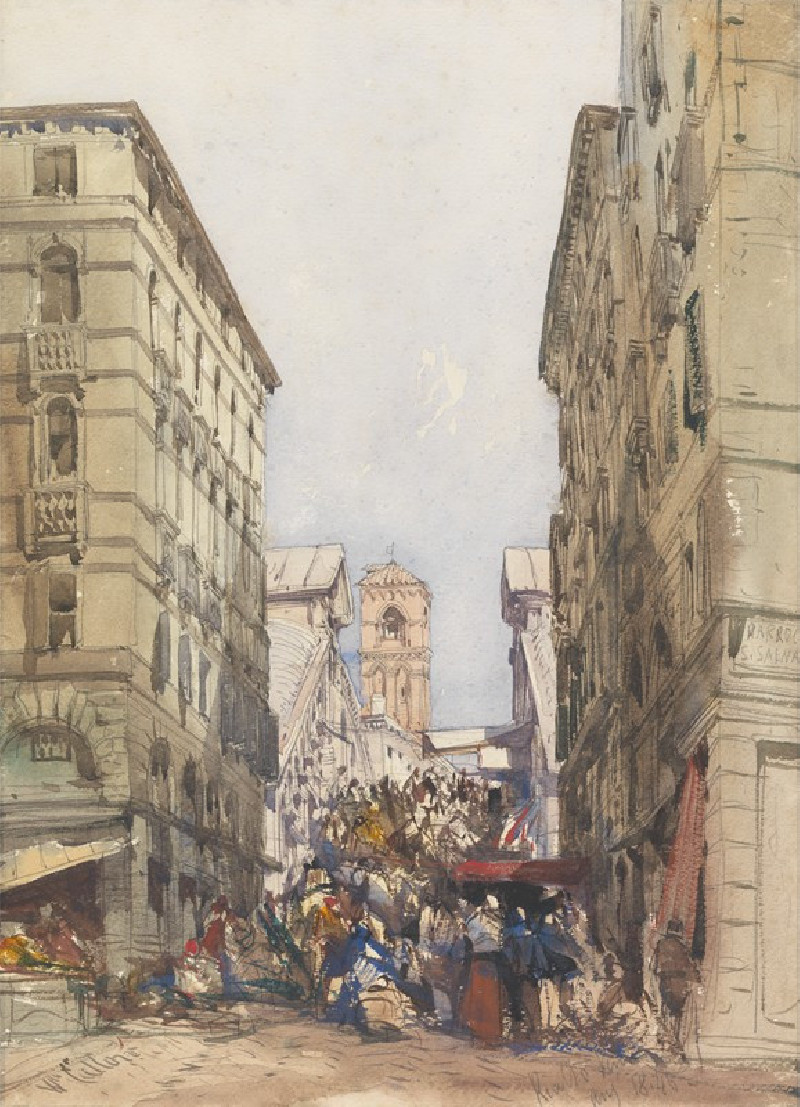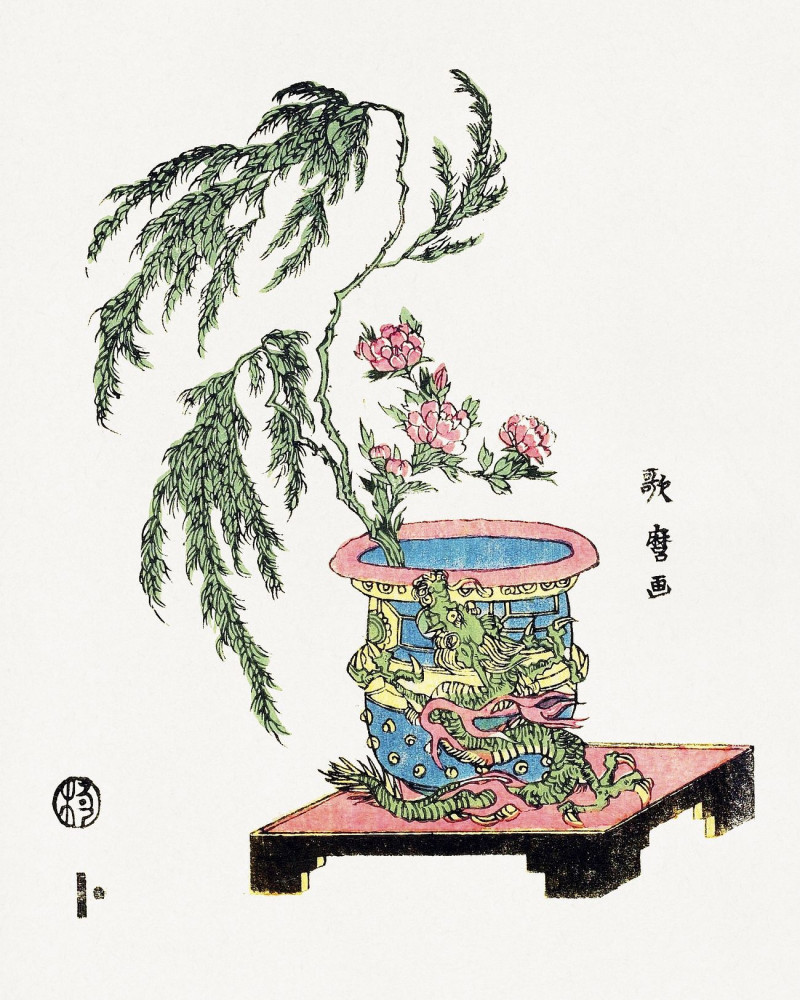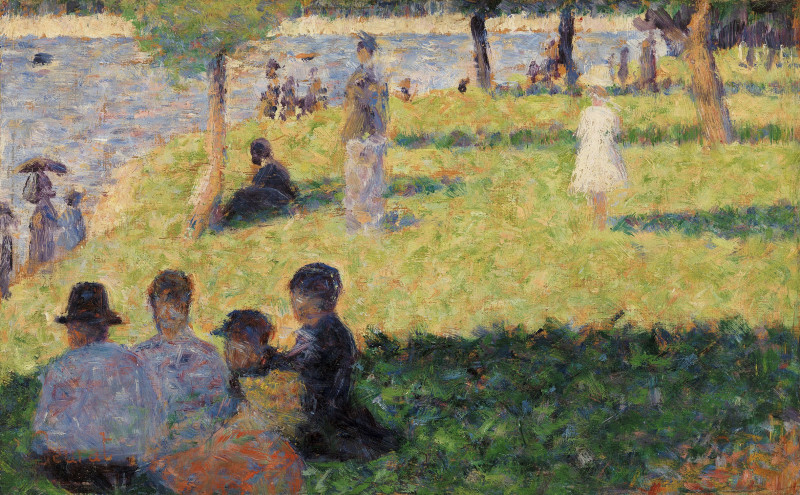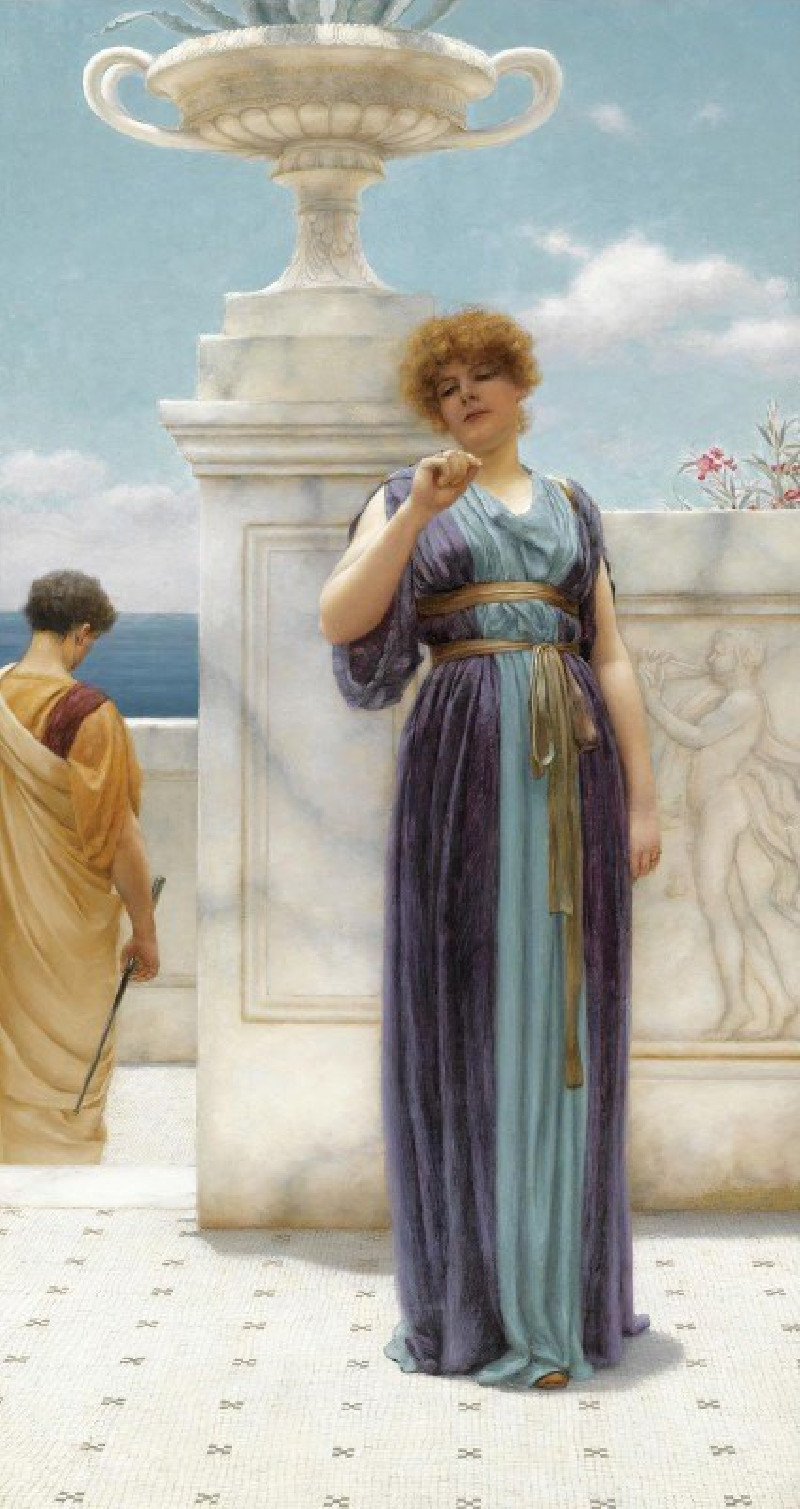Storm Clouds (1880)
Technique: Giclée quality print
Recommended by our customers
More about this artwork
Welcome to a captivating glimpse into John Henry Twachtman’s 1880 painting "Storm Clouds," a stunning representation of nature’s transient beauty as a storm approaches. This piece strikingly captures the serene yet dynamic atmosphere of a coastal scene moments before a storm.In "Storm Clouds," Twachtman uses a muted yet compelling palette to portray the heaviness of the impending weather. The sky, filled with varying shades of grey and subtle blue undertones, reflects the brooding, contemplative mood that often accompanies such natural spectacles. This overhead turmoil contrasts deeply with the relatively calm and dark seawater, inviting viewers to feel the tension between the brewing storm and the quiet sea.The shoreline curves gently from the foreground into the background, leading the eye towards a small sailboat that appears almost vulnerably against the vast, open water. This bright spot of white amidst the darker hues seems to signify both isolation and resilience. The detailed brushwork in the sandy beach and the wispy beach grass adds texture and depth, enhancing the painting’s realism.John Henry Twachtman, known for his impressionistic landscapes that often feature a personal or intimate view of his surroundings, evokes a sense of solitude and peaceful resignation to nature’s whims in this work. "Storm Clouds" is not just a visual exploration but an emotional journey that subtly engages with themes of natural power and human perseverance.
Delivery
Returns
John Henry Twachtman was an American painter best known for his impressionist landscapes, though his painting style varied widely through his career. Art historians consider Twachtman's style of American Impressionism to be among the more personal and experimental of his generation. He was a member of "The Ten", a loosely allied group of American artists dissatisfied with professional art organizations, who banded together in 1898 to exhibit their works as a stylistically unified group.

